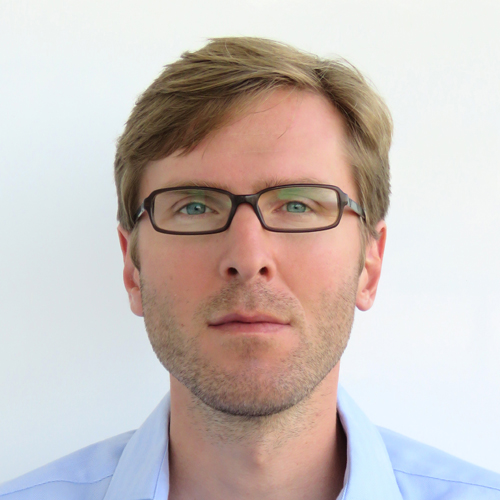
doc. PhDr. Dalibor Kučera, Ph.D.
-
Unit:PF Department of Psychology | Associate Professor
PF Department of Psychology | Head -
E-mail:
-
Phone number:+420 389 033 218
-
Building:
-
Room:050601002 pracovna 002 - 1. patro - Výukový objekt PF - U tří lvů (kancelář 202)
U Tří lvů 1725/1A, 370 01 České Budějovice
navigate
Office hours
- Monday (14:00 - 15:00)
Courses taught
- Assisting in psychological research (7APPV)
- Basic Methodology (YZMB)
- Data and Methods in Psychology (7DMP)
- Developmental psychology (VPCŽI)
- Doctoral Seminar 1 (9DOS1)
- Doctoral Seminar 1 (9EDS1)
- Doctoral Seminar 2 (9DOS2)
- Doctoral Seminar 2 (9EDS2)
- Doctoral Seminar 3 (9DOS3)
- Doctoral Seminar 3 (9EDS3)
- Doctoral Seminar 4 (9DOS4)
- Doctoral Seminar 4 (9EDS4)
- Edu. and psych. teaching practice (0PP)
- Educational and School Psychology (PGSFK)
- Educational and School Psychology (PGSZ)
- Educational and school psychology (UPSPS)
- Educational and School Psychology (YPŠPB)
- Guidance and lec. in st. sc. pr. (B. l.) (7VLOC)
- Guidance and lec. in st. sc. pr. (M. l.) (0VLOC)
- Interdiscipl. Approaches in Psychol. (0IPP)
- Introduction to psychology (UPSSN)
- Metod. psych. výz. a multivar. analýzy (0MPV)
- Metodologie pedagogického výzkumu (9BPV)
- Metodologie vědecké práce (9BMV)
- Motivation in School - Settings (MVVE)
- Motivation in School - Settings (MVVFK)
- Ped.and psych.assis.pract.and it ref. (7APR)
- Pedagogic and Social Psychology (PSPK)
- Pedagogical and school psychology (PDSSN)
- Perspectives of Psychological Science (7PPV)
- Práce s nadanými jedinci (NACŽI)
- Psychology (3PS)
- Psychology for Secondary School Teachers (3PSUS)
- Psychology for teaching in high school (PSASŽ)
- Psychology for teaching in high school (PSSCŽ)
- Psychology for teaching in high school (PSČSŽ)
- Psychology I.-Teacher's Personality (0PS1)
- Psychology I. - Teacher's Personality (0PSK1)
- Psychology II. - Developmental & Pupil (0PS2)
- Psychology in High School Practice (0PS)
- Psychology of adolescence (YPSAN)
- Psychology of Secondary Schools (3PSS)
- Psychology of Secondary Schools (3PSST)
- Psychology of Verbal Communication (0PVK)
- Psychopathology (PACŽI)
- Selected Topics in Contemp. Psychology (7VTSP)
- Selected Topics of Current Psychology (EIPPS)
- Selected Topics of Current Psychology (IPPS)
- Self-Concept and Teacher Identity (7SIU)
- Sem. f. pedagog. - psycho. practice (0SPP)
- Seminář diplomové práce III - záv. r. p. (0SDP3)
- Some current quest. in School Psychology (YAPŠN)
- Specialized Academic Course (0OAK)
- Specialized Assist. in Psych. Research (0PSV)
- Topical problems of psychol. research (XOPSV)
- Zahraniční stáž (0ZS)
Projects
Projekty lorem ipsum:
- lorem ipsum
- lorem ipsum
- lorem ipsum
Publication
| Detail | Authors | Publication title | Year | Publication type | Publication sub-type |
|---|
CV
Dalibor Kučera is a lecturer and researcher in the field of general, social, and educational psychology. He has long been involved in research on methods based on communication analysis and human-machine interaction.
He obtained his Ph.D. in General Psychology and his doctorate (PhDr.) in Psychology from the Faculty of Arts at Masaryk University, and his associate professor title (doc.) in Psychology from the Faculty of Arts at Charles University.
Since 2012, Dalibor Kučera has focused on the psychology of language use. Between 2016 and 2018, he led a three-year research project, CPACT, “Computational Psycholinguistic Analysis of Czech Text,” supported by the Czech Science Foundation (16-19087S), which significantly contributed to the development of methods for analyzing Czech-language texts.
In 2020, he received a senior Fulbright-Masaryk Scholarship from the J. W. Fulbright Commission for the project “Personality Processes and Oral Communication” (2020-28-11) at the University of Arizona (Tucson). This project initiated a long-term collaboration with the institution and contributed to the formulation of key challenges in the field, which were summarized in the study Beyond English: Considering Language and Culture in Psychological Text Analysis.
Since 2022, he has focused on utilizing virtual reality in psychological research, primarily within the VR TEAM platform. In 2025, he became the principal investigator of the grant project “Development of Social and Communication Skills in Adaptive VR Simulations” (TA ČR SIGMA TQ11000016, subproject PoC 01-02).
In 2024, he received support from the ELISE Mobility Program for Experienced Researchers (Horizon 2020, 951847) for AI research, specifically in the field of human-centric machine learning and interaction. He was appointed as an associate scientist at the ELLIS Alicante center.
Dalibor Kučera has been a lecturer since 2013 and head of the Department of Psychology at the Faculty of Education, University of South Bohemia in České Budějovice since 2021. Since 2018, he has been a member of the Ethical Committee of the Faculty of Education, University of South Bohemia, and from 2022 to 2023, he was a member of the Academic Senate of the University. In 2020, he initiated collaboration with the Department of Psychology at the Faculty of Education, University of West Bohemia in Plzeň.
He has served as an elected member of the Board of the Czech-Moravian Psychological Society (ČMPS) from 2018 to 2022 and from 2022 to 2026. Since 2016, he has been a member of the Czech Association for Educational Research. He was a member of the executive and technical editorial board of the journal Pedagogika, published by the Faculty of Education, Charles University (2015–2022). From 2023 to 2024, he was elected president of the Association of Psychology Departments in the Czech Republic.
Dalibor Kučera is the author of numerous academic publications. Among his significant monographs are Personality Markers in Text, which focuses on the application of quantitative psycholinguistic analysis of written expression in personality description, Modern Psychology: Main Fields and Topics of Contemporary Psychological Science, and the collective monograph Research CPACT: Computational Psycholinguistic Analysis of Czech Text.
For more information see the academic profile.
Creative activity
For detailed information on publication activities see: Publications.




